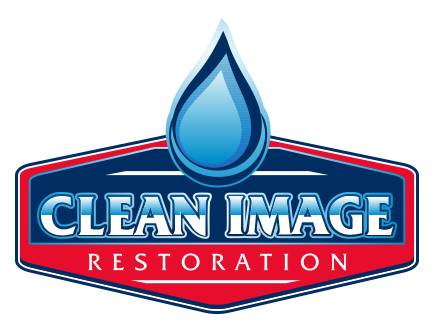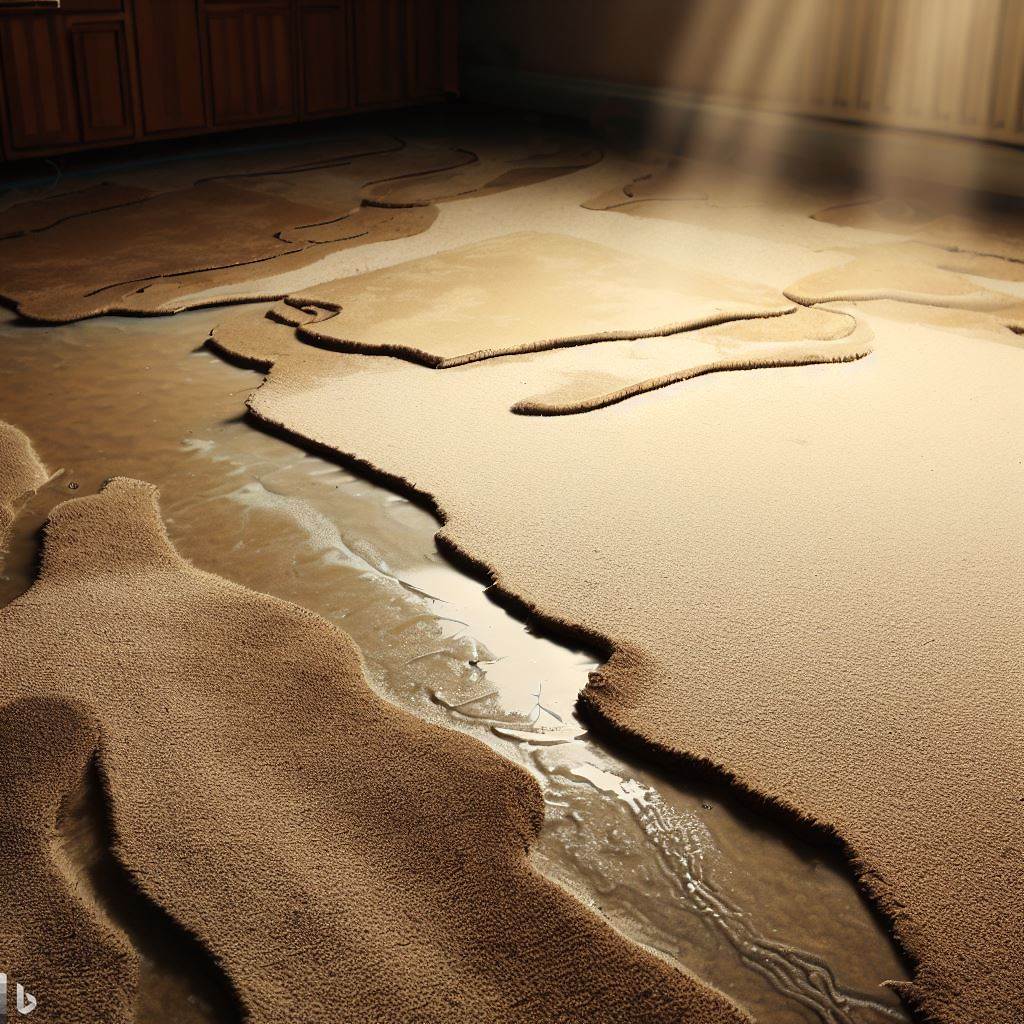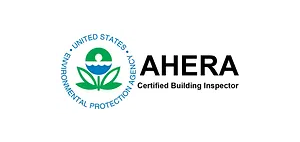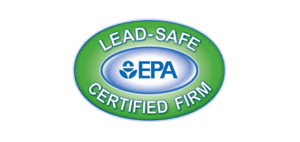Water damage is a nightmare for any homeowner. Not only can it be costly to repair, but it can also lead to long-term structural damage and potential health hazards. However, by implementing some simple strategies, you can significantly reduce the risk of water damage in your home. In this section, we will provide you with essential water damage prevention tips that every homeowner should know.
Key Takeaways:
- Water damage can have serious consequences for your home and health.
- Implementing basic water damage prevention measures can help you save money and protect your home.
- Regular inspection and maintenance of your plumbing system, roof, and foundation are crucial in preventing water damage.
- Prepare for natural disasters by using innovative solutions and creating emergency plans.
- Advancements in technology have provided us with tools to detect and prevent water damage.
Understand Potential Causes of Water Damage
Water damage can be caused by a variety of factors. It’s important to understand these potential sources so that you can take preventative measures and minimize the risk of damage to your home.
Plumbing issues are one of the most common causes of water damage. Leaking pipes, faulty connections, and clogged drains can all lead to water damage in your home. Regular inspection and maintenance of your plumbing system can help prevent these issues from occurring.
Roof leaks are another significant source of water damage. Over time, exposure to the elements can cause damage to your roof, resulting in leaks that can lead to water damage in your home. Regular roof inspections and gutter maintenance can help prevent these issues.
| Cause of Water Damage | Preventive Measures |
|---|---|
| Plumbing issues | Regular inspection and maintenance of plumbing system; prompt fixing of leaks and clogs |
| Roof leaks | Regular roof inspections; gutter maintenance; addressing any leaks or damage promptly |
| Foundation problems | Regular foundation maintenance; proper grading; waterproofing measures |
| Natural disasters | Installing a sump pump; elevating valuables; creating emergency plans |
Foundation problems can also lead to water damage. Poor drainage, soil movement, and structural issues can all cause problems with your foundation and lead to water damage in your home. Regular foundation maintenance, proper grading, and the use of waterproofing measures can help prevent these issues.
Natural disasters such as floods and hurricanes can also cause water damage to your home. While it’s impossible to prevent these events from happening, you can take steps to minimize the damage. Installing a sump pump, elevating valuables, and creating emergency plans are all important measures to take.
By understanding these potential causes of water damage, you can take preventive measures to protect your home. Regular maintenance, prompt repairs, and the use of preventive technologies can all help minimize the risk of water damage in your home.
Maintain Your Plumbing System
Your plumbing system is one of the most critical components of your home when it comes to water damage prevention. A well-maintained plumbing system can help you save thousands of dollars in repair costs down the line. Here are some essential plumbing system maintenance tips:
- Regular inspections: Schedule regular inspections with a licensed plumber to ensure that pipes are in good condition and free of leaks. Conduct these inspections at least once per year, or more frequently if you live in an older home.
- Proper pipe insulation: Ensure that your pipes are properly insulated, particularly in colder climates, to avoid frozen pipes that can crack and cause leaks.
- Prompt leak repair: If you do discover a leak, act quickly to get it fixed. Even small leaks can lead to significant water damage over time.
Additionally, consider installing water detection devices in areas at high risk of water damage, such as the basement or near pipes. These devices can alert you to potential leaks before they become more significant problems.
| Plumbing System Maintenance Checklist | Frequency |
|---|---|
| Inspect pipes for leaks and damage | At least once per year |
| Properly insulate pipes | As needed, particularly in colder climates |
| Repair leaks promptly | As soon as they are discovered |
| Install water detection devices | In areas at high risk of water damage |
By following these tips, you can help ensure the long-term health of your plumbing system and prevent water damage in your home.
Take Care of Your Roof
Your roof is one of the most critical components of your home when it comes to protecting against water damage. Regular maintenance can help prevent roof leaks and ensure that your roof is functioning correctly.
One essential aspect of roof maintenance is regularly inspecting your roof for any signs of damage. This includes checking for missing or damaged shingles, cracks, or holes. If you notice any of these issues, it’s essential to address them promptly to prevent water from seeping into your home.
| Roof Maintenance Tips | Roof Leak Prevention Tips |
|---|---|
|
|
If you’re unsure about how to maintain your roof properly, consider hiring a professional roofing contractor. They can inspect your roof, identify any issues, and provide recommendations for repairs or maintenance.
Regular roof maintenance may seem like a hassle, but it’s worth the effort. By taking care of your roof, you can prevent leaks and other forms of water damage, saving you time and money in the long run.
Protect Your Foundation
Your home’s foundation is crucial in preventing water damage. Foundation damage can lead to cracks and leaks that allow water to seep into your home. Here are some tips to protect your foundation:
- Regular foundation inspection: Hire a professional to inspect your foundation regularly. They can identify any potential problems and recommend necessary repairs.
- Proper grading: Ensure the soil around your home slopes away from the foundation. This will prevent water from pooling and seeping into your home.
- Landscaping: Keep plants and trees at least 5 feet away from your home’s foundation. Their roots can damage the foundation and allow water to enter your home.
- Waterproofing: Consider waterproofing your foundation to provide an extra layer of protection. A waterproof membrane can be installed on the exterior of the foundation to prevent water from seeping in.
By taking these steps, you can protect your home’s foundation and prevent water damage from occurring.
Safeguard Against Natural Disasters
While natural disasters are unpredictable, you can still take steps to prepare your home and minimize the risk of water damage.
One of the most effective measures you can take is to install a sump pump. This device drains water from the basement or crawl space and prevents flooding. Make sure to check your sump pump regularly and keep it in good working condition. In case of a power outage during a storm, consider getting a battery backup for your sump pump to ensure it continues to function.
Another way to safeguard against flooding is to elevate valuable items in your home. If you live in an area prone to flooding, it’s wise to move furniture, electronics, and other valuable belongings to higher ground or upper levels of your home.
Creating an emergency plan is also crucial in natural disaster preparation. Make sure every member of your household knows what to do in case of an emergency. Set a meeting point or a place where you can all gather in case you get separated. Keep emergency supplies such as food, water, and medicine in a readily accessible location.
Lastly, consider investing in flood insurance to protect your home and belongings in case of a natural disaster. Standard homeowner’s insurance policies typically do not cover flood damage, so it’s essential to have separate coverage for flooding.
By taking these measures, you can safeguard your home and minimize the risk of water damage in case of a natural disaster.
Utilize Technology and Tools
Advancements in technology have made it easier than ever to prevent water damage in your home. By utilizing tools such as water detection devices and smart home systems, you can detect and address potential water damage before it becomes a major issue.
Water detection devices can alert you immediately if there is any excess moisture or standing water in your home. These devices can be placed in areas prone to flooding or leaks, such as the basement or near water heaters. By receiving an alert as soon as water is detected, you can take immediate action to prevent further damage.
Another innovative solution is a smart home system that includes water sensors. These systems can be programmed to automatically shut off water flow if a leak is detected, helping to prevent significant damage caused by burst pipes or other plumbing issues.
Investing in these technologies can provide peace of mind and potentially save you thousands of dollars in repair costs. Consider incorporating them into your overall water damage prevention strategy.
Conclusion
By implementing these water damage prevention tips, you can significantly reduce the risk of costly repairs and protect your home. Remember to keep your plumbing system well-maintained, take care of your roof, and safeguard your foundation. Be prepared for natural disasters by creating an emergency plan and utilizing technology and tools such as water detection devices and smart home systems.
It’s important to be proactive and take necessary precautions to ensure a safer and more resilient living environment. By following these tips, you can protect your home from water damage and potentially save on expensive repairs in the future.
FAQ
What are some essential water damage prevention tips for homeowners?
Implementing essential water damage prevention tips can help protect your home from costly repairs. Some tips include regular plumbing system maintenance, roof inspections, foundation protection, and safeguarding against natural disasters.
What are the potential causes of water damage?
Common sources of water damage include plumbing issues, roof leaks, foundation problems, and natural disasters. Understanding these potential causes can help homeowners take proactive measures to prevent water damage.
How can I maintain my plumbing system to prevent water damage?
To maintain your plumbing system, it is important to conduct regular inspections, properly insulate pipes, and promptly fix any leaks. These measures can help prevent water damage caused by plumbing issues.
What steps should I take to take care of my roof and prevent water damage?
Regular roof inspections, gutter maintenance, and addressing any leaks or damage promptly are essential in preventing water damage. Taking care of your roof can help protect your home from water infiltration.
How can I protect my foundation from water damage?
To protect your foundation, it is important to perform regular maintenance, ensure proper grading, and consider waterproofing measures. These steps can help minimize the risk of water damage to your foundation.
What measures can I take to safeguard against natural disasters and prevent water damage?
While we can’t control natural disasters, we can take steps to minimize water damage. Installing a sump pump, elevating valuables, and creating emergency plans are some measures you can take to safeguard against natural disasters.
Are there any technology or tools available for water damage prevention?
Yes, advancements in technology have provided various tools for water damage prevention. Water detection devices, smart home systems, and other innovative solutions can help homeowners detect and prevent water damage more effectively.






